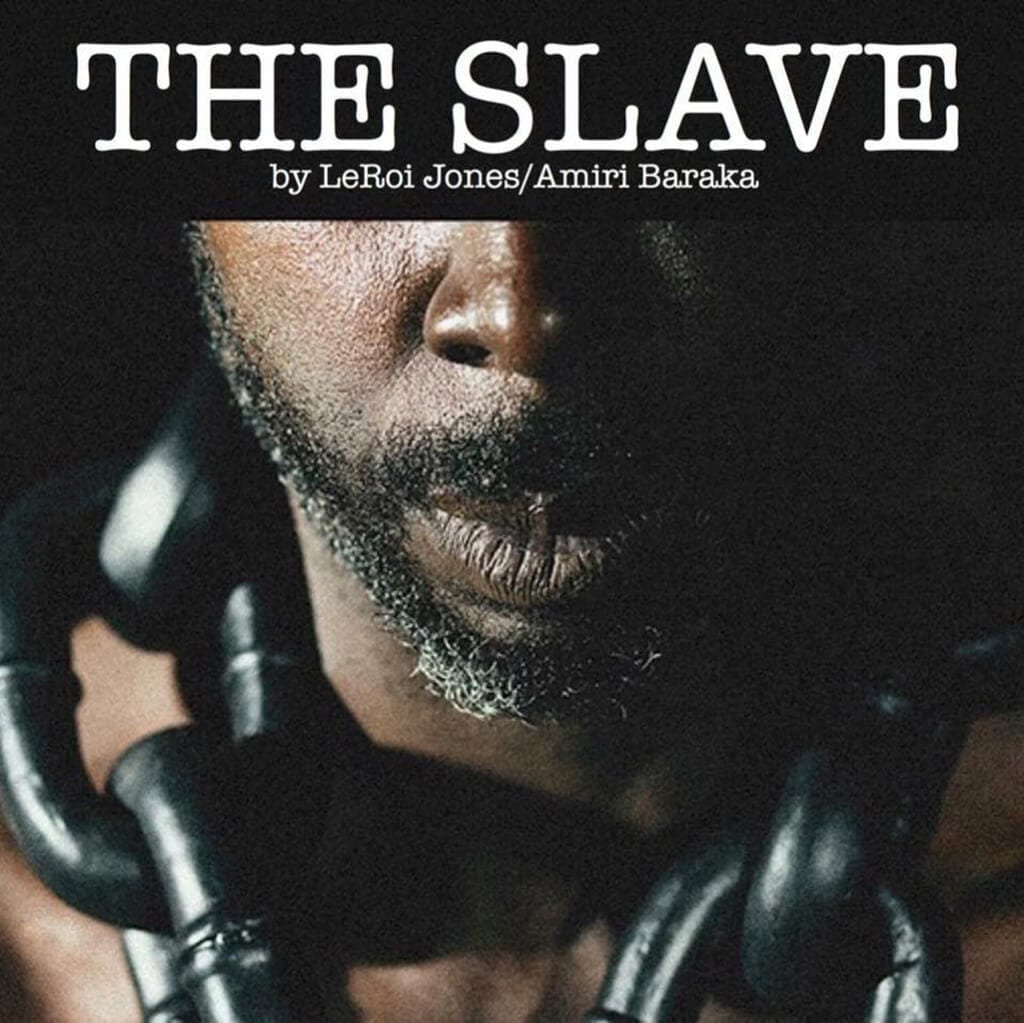LeRoi Jones’ play The Slave is described as ‘angry, passionate, and unapologetic’; unfortunately, in this production at least, this passion does not make up for the script, which is sadly lacking. The one-act play begins with a monologue from African-American Walker Vessels, which sets the tone for a meditative exploration of racial tension in 1960s America, when the play was written and set. However, this expectation is never fully realised in the play; instead what we get is a domestic drama, as Vessels visits his (white) ex-wife Grace and her new (white) husband Brad Easley.
The relationships between the three characters and their backstories are revealed through their conversation, which means that the dialogue sometimes comes across as contrived, written for exposition purposes but not adding anything to the scene in front of us. The conversation between the three tends to go round in circles, revisiting the same issues and avoiding any meaningful debate. Although the Civil Rights Movement is often mentioned, it mainly appears in relation to Vessels’ involvement in it, and we don’t get a chance to really understand, let alone make a judgment on its impact on his and Grace’s relationship.
The dialogue is erratic, with Grace in particular often staying silent for extended periods of time and then suddenly leaping back into the conversation; this disrupts the rhythm of the play, and prevents us from connecting to the characters, since there is no ebb and flow – no opportunity to reflect in moments of silence, or be swept up in passionate debate. The repeated attempts at pop psychology also keep us at a distance from the characters, not allowing us to make up our own minds about their motivations and giving the play a sense of shallowness as a result.
Browne, as Vessels, has exceptional stage presence, but for some reason we get only brief glimpses of the character’s real depth; whether due to a lacklustre script or directorial errors, the characters in the play never really engage us. Instead, the play swings from polemic to domestic drama, from genuine attempts to understand societal issues to shallow pop psychology. The plot has a number of twists which fail to shock. This play does not leave the audience feeling unsatisfied because it asks more questions than it answers; it leaves us feeling this way because it doesn’t really ask any questions. Perhaps, in 1964, it was shocking. In 2016, however, it feels like a scratch on the surface of many centuries’ of oppression, struggle, and debate, and we leave wanting much more than it offers.

